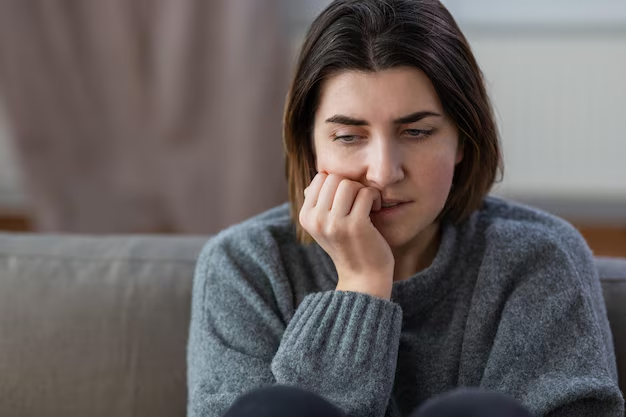Can Anxiety Make You Feel Sick? Unraveling the Connection Between Anxiety and Nausea
Feeling butterflies in your stomach is common when you’re nervous or anxious. But for some, anxiety manifests more intensely, leading to full-blown nausea. If you've ever wondered why stress can take such a physical toll, you’re not alone. Let's dive into the deep connection between anxiety and nausea, explore why your body reacts this way, and discover practical steps to manage these symptoms effectively.
Understanding Anxiety: More Than Just a Mental Game
Anxiety is far more than fleeting worry or fear. It's an intricate emotional response that can profoundly impact your physical well-being. The body's fight or flight response, which releases a surge of adrenaline and other stress hormones, triggers a wide range of physical symptoms. One of the most prevalent reactions? You guessed it—nausea.
The Physical Repercussions of Anxiety
When you’re anxious, your body enters a state of high alert. This can lead to:
- Increased heart rate
- Rapid breathing
- Muscle tension
- Stomach discomfort, including nausea
These symptoms are a result of the sympathetic nervous system's activation, which prepares your body to face (or flee from) perceived threats.
How Anxiety Triggers Nausea: A Closer Look
The Gut-Brain Connection
The intricate link between your brain and gut plays a crucial role in how anxiety affects your stomach. This connection, known as the gut-brain axis, ensures constant communication between your stomach and brain. When anxiety kicks in, this link can become overactive, leading to gastrointestinal issues, including nausea.
Hormonal Havoc
Anxiety causes the release of stress hormones like cortisol and adrenaline. These hormones can affect digestion, slowing it down and sometimes even halting it temporarily, which contributes to feelings of nausea.
Identifying Anxiety-Induced Nausea
Discerning whether your nausea is caused by anxiety can be challenging. Here are some indicators:
- Timing of Nausea: Does your nausea spike during stressful situations?
- Other Anxiety Symptoms: Are you experiencing other anxiety symptoms like a racing heart or tension?
- Lack of Physical Illness: Absence of other illness-related symptoms like fever can also suggest anxiety is the root cause.
Managing Anxiety-Induced Nausea
Mindfulness and Relaxation Techniques
Mindfulness and relaxation exercises can significantly alleviate anxiety symptoms, including nausea. Techniques to consider:
- Deep Breathing: Slow, deep breaths can help calm your nervous system.
- Progressive Muscle Relaxation: Gradually tensing and releasing muscle groups can reduce physical tension.
Lifestyle Adjustments
- Dietary Choices: Eating balanced meals and avoiding caffeine can stabilize your system.
- Regular Exercise: Physical activity releases endorphins, which can counteract stress hormones.
Cognitive Behavioral Techniques
Cognitive Behavioral Therapy (CBT) focuses on modifying negative thought patterns and behaviors. By addressing anxiety at its cognitive root, CBT can be effective in reducing associated physical symptoms like nausea.
When to Seek Help
While self-help strategies can be valuable, knowing when to seek professional help is crucial. Consider consulting a healthcare provider if:
- Nausea persists and disrupts daily life
- Anxiety significantly affects your physical health
- Self-management techniques do not alleviate symptoms
Practical Tips to Reduce Anxiety and Nausea
Create a Soothing Environment
- Aromatherapy: Use calming scents such as lavender or chamomile.
- Music Therapy: Listening to soothing music can help calm your mind.
Chew Ginger
Ginger is a natural remedy for nausea. Sipping on ginger tea or chewing ginger candies might help alleviate symptoms.
Stay Hydrated
Proper hydration can stave off worsened nausea. Sipping water throughout the day is essential.
Final Insights: Understanding and Managing Anxiety-Induced Nausea
Feeling nauseous when you’re anxious is an overwhelming yet common experience. Recognizing the signs of anxiety-induced nausea is the first step toward management. By implementing both immediate relief methods and long-term lifestyle changes, you can mitigate its impact on your life. Remember, reaching out for professional guidance is a testament to strength and self-awareness.
⚡ Quick Summary: Managing Anxiety-Induced Nausea
- 🧠 Understand the Cause: Nausea is often linked to anxiety through the gut-brain connection.
- 🧘♂️ Practice Relaxation: Techniques like deep breathing and mindfulness can alleviate symptoms.
- 🍵 Try Natural Remedies: Ginger and hydration can help soothe nausea.
- 💪 Make Lifestyle Changes: Regular exercise and a balanced diet stabilize anxiety.
- 🚨 Seek Professional Guidance if Needed: If symptoms persist, consulting a healthcare provider is advisable.

